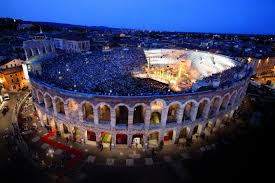Madrid - The International Olive Council has begun the administrative procedures for the creation of the new Observatory and to rebuild its website. This activity follows the decisions adopted by the Council of Members at its 106th session in November 2017. The tasks of the Observatory, at a glance, will be to establish a reliable software system to assess the situation of the olive sector through relevant, accurate and regular indicators; collect international information, analyse and process data on the table olive and olive oil sector; disseminate the information and data collected and make it available to decision makers, planners, researchers, producers, exporters and other stakeholders in the sector.
"This is a very complex process because world olive growing is constantly evolving and the chain of operators requires constant updates", the Executive Director Abdellatif Ghedira said in a statement issued for Veronafiere's EVOO DAYS. "We are working with member countries to create a network of information services, which we hope to present to the Council at the end of 2018".
One of the priorities of the IOC is to establish and administer a global information platform and to coordinate information and indicators for the development of the sector. To this end, the Council of Members has established a new Information Systems Department to coordinate the work of establishing this Observatory. It will also be responsible for the monthly economic Newsletter, and the OLIVÆ online journal – the last issue was dedicated to Tunisia and the next will focus on Morocco–, in addition to all the regular communications with the international sectoral press.
The International Olive Council, created in 1959 under the aegis of the United Nations, is the only international intergovernmental organisation in the olive oil and table olive sector. The Council is based in Madrid.
To achieve its objectives, the IOC engages in international technical cooperation through research and development projects, training activities and the transfer of technology. It furthermore supports the growth of the international trade of olive oil and table olives; monitors and updates trade regulations; promotes quality; and works for a greater integration of environmental considerations in the activities of the sector. Its promotion of world consumption of olive oil and table olives uses innovative campaigns and specific programmes and it publishes statistics and information on the world market for olive oil and table olives. The IOC periodically brings together government representatives to reflect on the challenges facing the sector and the priorities of action for the IOC. It also works closely with the private sector.
Official data (updated in November 2017) indicates that world production in the current crop year should be around 3 million tonnes. This data is always subject to confirmation at the end of the crop year. Over 1.8 million tonnes of that global production come from the European Union; 900 000 tonnes come from non-European member countries such as Tunisia, Turkey, Morocco, Algeria, Argentina, Jordan and Palestine; and another 180 000 tonnes come from countries that are not yet members of the IOC, such as Syria, Australia and Chile. The main global importer of olive oil remains the USA, with a 37% share of the world market, followed by Europe, with a 16% share.
.










